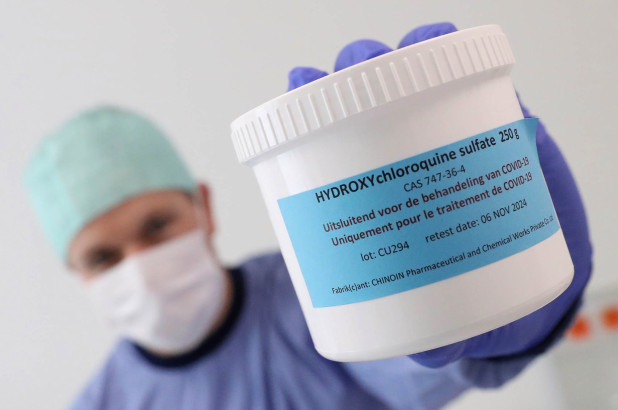An antimalarial drug, hydroxychloroquine helped reduce deaths in hospitalized patients infected with Covid-19, according to a large retrospective study published Thursday.
Coronavirus patients treated with the drug hydroxychloroquine within the first two days of admission were more likely to survive than patients who received other treatment, according to the study, which was published online by the International Journal of Infectious Diseases.
Dr. Marcus Zervos, the system’s division head of infectious disease, said 26 percent of those not given hydroxychloroquine died, compared to 13 percent who got the drug.
“Overall crude mortality rates were 18.1 percent in the entire cohort, 13.5 percent in the hydroxychloroquine alone group, 20.1 percent among those receiving hydroxychloroquine plus azithromycin, 22.4 percent among the azithromycin alone group, and 26.4 percent for neither drug,” the team wrote in a report published in the International Journal of Infectious Diseases.
The study came a little more than two weeks after the Food and Drug Administration yanked its emergency use authorization for hydroxychloroquine as a treatment for the coronavirus in hospitals, citing a lack of evidence it worked and that the risks outweighed any potential benefits.
The agency said the drug, along with a similar version called chloroquine, which is normally prescribed to treat malaria and some forms of severe arthritis, was “unlikely to be effective in treating COVID-19,” according to a statement.
The researchers said their findings showed that hydroxychloroquine could be potentially useful as a treatment for coronavirus, which has killed nearly 130,000 Americans to date, according to Johns Hopkins University.
























